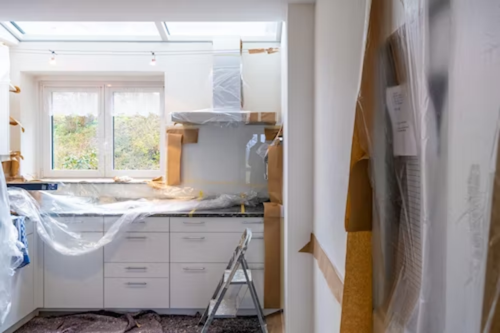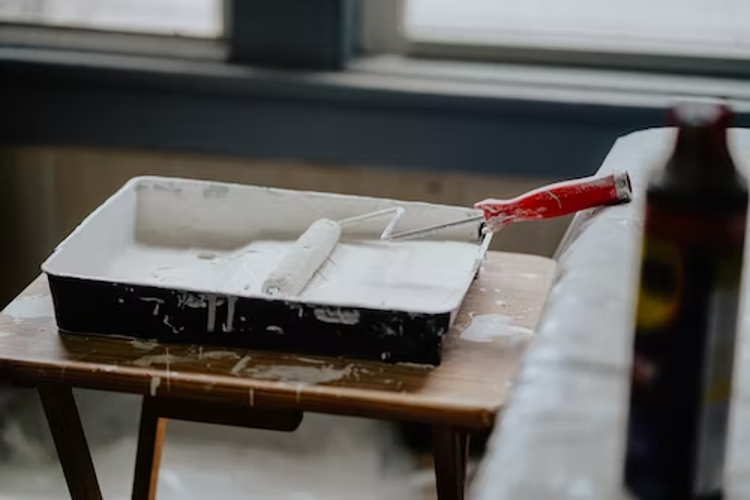Before you start your renovation project, it is important to thoroughly prepare your home. There are many things to consider, from moving furniture and protecting surfaces to preparing utilities and removing hazards. While the process may seem daunting, following these smart tips will help ensure that everything goes smoothly during your remodel.
1. Self storage for your stuff
If you are planning to undertake a renovation, it makes sense to clear out your furniture and items first. This will make it easier for the contractors to work on the space without obstacles. Consider renting a storage unit or asking a friend or family member if you can store some of your items with them during the remodeling process. Also, think about what items from your home may be damaged during construction and consider moving those away too. By safely storing your belongings, you can avoid any potential damage or loss. It is also important to make sure that the items you store away are clean, as any dirt or dust collected during construction could potentially damage them.
2. Protect surfaces and walls before starting any work
Covering carpets, rugs, and hardwood floors is essential when beginning any kind of renovation project. Whether you opt for plastic sheeting or drop cloths, these should be laid down before builders entering the space to protect against scratches, dirt, and dust. To ensure that your walls are unscathed, remove any artwork or wall hangings before the renovation and cover them with dust sheets or plastic wrap. You should also cover window frames, trim, crown molding, and baseboards to prevent staining from paint or other materials.
3. Prepare your utilities
You may need to make changes to your home’s existing utility system for it to accommodate the renovations you are making. This could mean adding additional outlets for power tools or re-wiring certain areas of the house such as bathrooms or kitchens where electrical appliances will be used more often. Before beginning a remodeling project, contact a professional electrician who can check that all the wiring is up to code and make any changes needed for safety.
4. Remove hazards
Before you begin your renovation project, it is important to identify any potential hazards in the home such as exposed nails, uneven flooring, or unsteady walls. Removing these risks not only helps protect the contractors working on the project but also ensures that anyone else present in the home, including yourself, stays safe during construction. Make sure that any hazardous items are properly disposed of and if necessary contact a professional who can help with their removal.
5. Check for existing issues
It is important to identify any potential issues with the home before beginning any renovation. For example, check that there are no cracks in the foundation or mold growing on any walls and ceilings. You may want to hire a professional inspector who can thoroughly evaluate your property and help you identify any areas of concern before work begins. By doing this, you can ensure that you address any problems quickly and effectively, avoiding unnecessary delays down the line.
6. Have a plan
Finally, it is essential to have a clear plan for the renovation project before you start. Make sure that you have discussed your ideas with the contractors and that everyone is on board with the changes being made. If possible, draw up a budget so that you can track any expenses during the remodeling process. By having a well-thought-out plan in place, you can avoid any potential delays or complications down the line and make sure that your home looks exactly as you envisioned when the project is complete.
Why is it important to prepare your house for renovation?
Renovating a home is an expensive and time-consuming process, so it is essential to make sure that you are as prepared as possible to avoid any potential problems or delays. Taking the time to do things such as storing items away safely, covering surfaces, checking utilities, removing hazards, and having a plan are all vital steps in protecting both the contractors working on the space and those living in it. By following these simple suggestions, you can ensure that your home looks exactly how you want it when the project is finished. Also, you can save yourself time and money by avoiding any unnecessary costs that could come from issues arising during the renovation process.

Following these smart tips will help ensure that your house is properly prepared for its upcoming transformation. From clearing out furniture and protecting surfaces to preparing utilities and removing hazards, taking time to prepare beforehand will pay off in the long run. With your house ready for renovation, you can rest assured knowing that the project will be successful and that you’ll soon have a beautiful new space to call home. Good luck!

